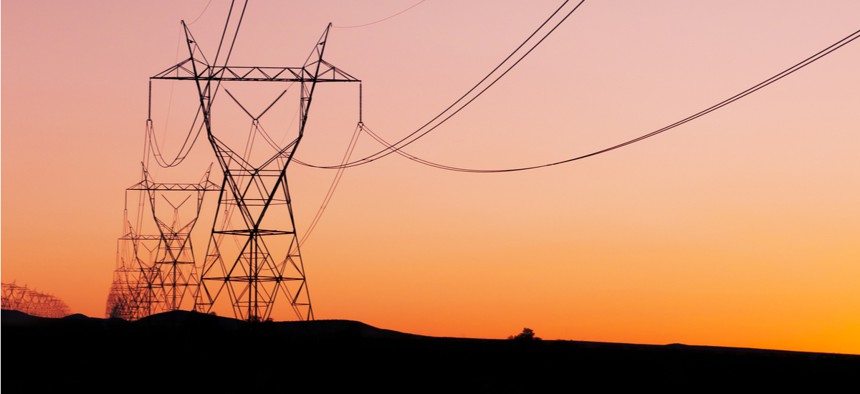Blockchain Could Help Bring Renewable Energy to the Power Grid, Experts Tell Congress

Shutterstock
But lawmakers want to know how to stop cryptocurrency miners from overwhelming local utility companies.
Blockchain technology could help the energy sector secure the power grid and overcome some of the biggest barriers to widespread use of renewable resources, industry experts told lawmakers.
But before that can happen, the government needs to fund more blockchain research and find a way to stop cryptocurrency miners from bogging down rural utility companies, they said.
Energy researchers and blockchain experts on Tuesday highlighted a handful of ways decentralized ledger technology could allow utility companies to better manage the flow of electricity across the power grid.
Wind, solar and other renewable technologies are offering individuals a way to generate their own energy, experts said, and as DIY-power becomes more popular, energy storage is becoming more spread across the grid. As infrastructure becomes increasingly decentralized, blockchain could give companies a means to efficiently track energy usage and generation, they told the Senate Energy and Natural Resources Committee.
“[Blockchain] means a grid that’s no longer centrally controlled and vulnerable to a grid operator attack—it means a market where customers can choose where they buy electricity,” said Claire Henly, managing director of the Energy Web Foundation.
While blockchain solves some of the cyber issues that come with centralized information, other panelists warned it carries its own risks.
“Blockchain technology is not a necessary or core component of cybersecurity,” said Arvind Narayanan, a computer science associate professor at Princeton University. “Policymakers should view it as one tool among many.”
Blockchain allows users to store information on an encrypted ledger that permanently records every exchange. It’s distributed nature makes it useful for keeping tabs on valuable data and ensuring information doesn’t get corrupted, but it’s recently become something of a buzzword in tech circles, where there’s a tendency to see new technology as the cure to every issue.
The technology is still relatively young, and like the early internet, its potential benefits are difficult to grasp, Henly said. She and other panelists encouraged lawmakers to devote more resources into research and development, while potentially incentivizing partnerships between computer scientists and energy researchers.
Lawmakers also questioned witnesses on ways to stop cryptocurrency miners, who run what are effectively server farms for validating transactions, from overwhelming local utility companies.
Mining cryptocurrency takes lots of computational power and thus consumes a massive amount of electricity. The cryptocurrency blog Digiconomist estimates worldwide Bitcoin miners will eat up roughly 73 terawatt-hours of electricity this year, roughly 18-times the annual energy consumption of New York City.
As Bitcoin prices rise, mining becomes more lucrative, and today miners are flocking to rural areas like Eastern Washington to take advantage of low electricity costs. Lawmakers expressed concerns that such activities could overwhelm small utility companies and potentially drive up electricity costs for everyday residents.
Panelists said lawmakers could explore ways to raise electric rates for individual Bitcoin miners or incentivize them to run operations overnight when overall power consumption is low. Thomas Golden, program manager for technology innovation at the Electric Power Research Institute, also speculated the energy toll of mining will go down as Bitcoin prices drop and miners explore more efficient techniques.
Jack Corrigan is a Staff Correspondent for Nextgov, where this article was originally published.
NEXT STORY: San Francisco’s Program to Link Startups to Cities Expands






